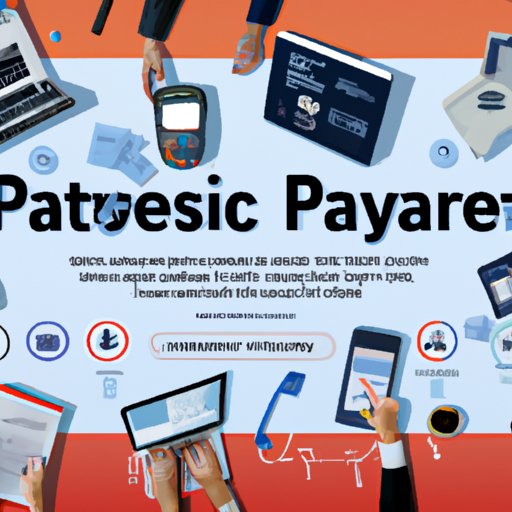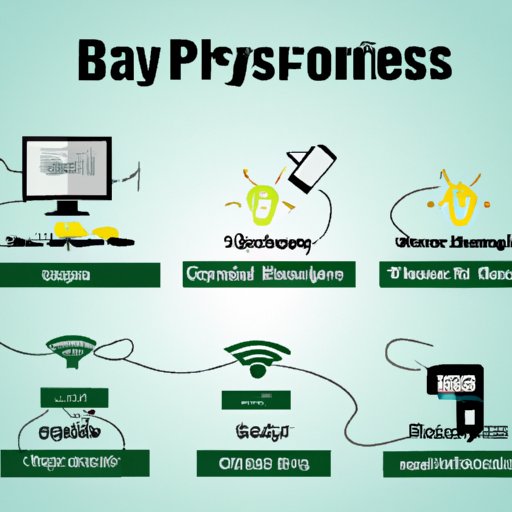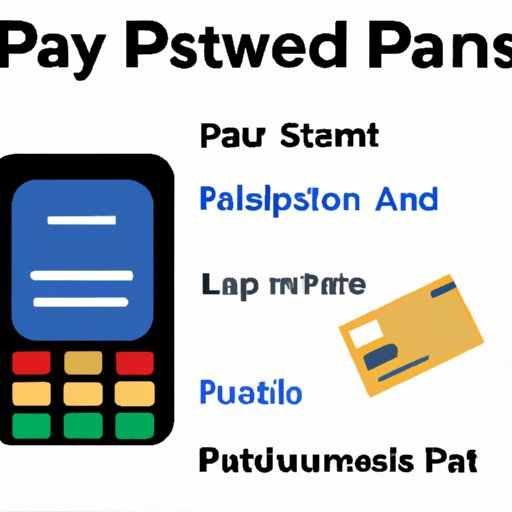Introduction
The success of any business depends on its ability to process payments quickly and securely. Payment processing businesses provide merchants with secure payment solutions that allow them to accept payments from customers online or in person. This guide will explain the different types of payment processing services available, provide an overview of the legal requirements for setting up a payment processing business, and offer advice on how to successfully market your business.

Overview of Payment Processing Business
A payment processing business is a company that facilitates the transfer of funds between merchants and their customers. It offers services such as credit card processing, debit card processing, and e-commerce solutions. Payment processing companies provide merchants with the tools they need to securely accept payments from customers. They also help merchants manage their finances and protect against fraud.
Payment processing businesses play an important role in the economy by enabling merchants to offer their goods and services to customers who may not have the cash or credit to purchase them. By providing secure payment solutions, payment processing businesses are helping to bridge the gap between buyers and sellers.

Benefits of Owning a Payment Processing Business
Owning a payment processing business has many advantages. The most obvious benefit is the potential for profit. With a payment processing business, you can charge merchants a fee for processing their payments, which can generate a steady stream of income. Additionally, payment processing businesses offer merchants the convenience of accepting payments online or in person, which can be beneficial for businesses that want to expand their customer base.
In addition to the potential for profit, owning a payment processing business also allows you to be your own boss and set your own hours. You’ll also have the freedom to choose the types of services you offer and the fees you charge. Finally, owning a payment processing business can give you the satisfaction of knowing you’re helping other businesses succeed.
Steps to Starting a Payment Processing Business
Starting a payment processing business can be a rewarding endeavor, but it’s important to understand the steps involved in getting started. Here are some tips to help you get your business off the ground:
Research the Different Types of Payment Processing Services Available
Before starting your business, it’s important to research the different types of payment processing services that are available. There are a variety of services that you can offer, such as credit card processing, debit card processing, and e-commerce solutions. Understanding the different types of services available will help you determine which ones are best suited for your business.
Understand the Legal Requirements for Setting Up a Payment Processing Business
Before you start your business, you should familiarize yourself with the legal requirements for setting up a payment processing business. Depending on where you live, there may be certain regulations that you need to comply with. Additionally, you will need to obtain a merchant account from a bank or financial institution in order to process payments.
Identify Necessary Equipment and Software Needed to Run a Payment Processing Business
Once you have a clear understanding of the legal requirements for setting up a payment processing business, you can begin to identify the necessary equipment and software needed to run your business. This may include point-of-sale terminals, credit card readers, and e-commerce software. It’s important to make sure that all of your equipment is up to date and compliant with current security standards.
Develop a Business Plan
Creating a business plan is an essential step in the process of starting a payment processing business. Your business plan should include information such as your target market, pricing structure, and marketing strategy. A well-crafted business plan will help you stay organized and focused as you move forward with launching your business.

Marketing a Payment Processing Business
Once you’ve established your business, you’ll need to focus on marketing it in order to attract customers. Here are some tips to help you get started:
Leverage Online Platforms
With the rise of the internet, there are now numerous online platforms that you can use to market your business. Social media sites such as Facebook, Twitter, and Instagram are great places to promote your services. Additionally, you can create a website to showcase your services and reach a wider audience.
Use Social Media to Reach Customers
Social media is an effective way to reach potential customers and build brand awareness. You can use social media to post updates about your business, highlight new products or services, and engage with existing customers. Additionally, you can use social media to connect with other professionals in the payment processing industry.
Offer Special Promotions
Another effective way to attract customers is to offer special promotions or discounts. This can be a great way to incentivize customers to use your services, and it can also help you stand out from the competition. Additionally, offering promotions can help you generate more revenue for your business.
Network with Other Professionals
Finally, networking with other professionals in the payment processing industry is a great way to build relationships and gain insight into the latest trends and developments. You can join professional organizations or attend industry events to meet other professionals and learn more about the payment processing business.
Conclusion
Starting a payment processing business can be a lucrative venture with the potential to generate a steady stream of income. To get started, it’s important to understand the different types of payment processing services available, the legal requirements for setting up a payment processing business, and the necessary equipment and software needed to run a successful business. Additionally, it’s important to develop a marketing strategy to reach potential customers and build brand awareness. With the right knowledge and dedication, you can be well on your way to running a successful payment processing business.
Summary of Payment Processing Business
Payment processing businesses provide merchants with secure payment solutions that allow them to accept payments from customers online or in person. Owning a payment processing business can be a rewarding endeavor with the potential to generate a steady stream of income. To get started, it’s important to understand the different types of services available, the legal requirements, and the necessary equipment and software needed to run a successful business. Additionally, it’s important to develop a marketing strategy to reach potential customers and build brand awareness.
Tips for Success
To ensure success when starting a payment processing business, it’s important to research the different types of services available, understand the legal requirements, identify necessary equipment and software, and develop a business plan. Additionally, it’s important to leverage online platforms and use social media to reach customers, offer special promotions, and network with other professionals in the payment processing industry.
(Note: Is this article not meeting your expectations? Do you have knowledge or insights to share? Unlock new opportunities and expand your reach by joining our authors team. Click Registration to join us and share your expertise with our readers.)
